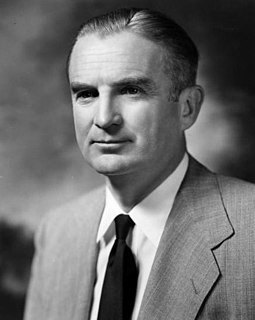A Quote by Christopher Walken
When you're onstage and you know you're bombing, that's very, very scary. Because you know you gotta keep going - you're bombing, but you can't stop. And you know that half an hour from now, you're still gonna be bombing. It takes a thick skin.
Related Quotes
The first suicide bombing that entered my consciousness was the Beirut embassy bombing. It was very personal. I'd been in the embassy and I knew most of the people in the station who were killed in the bombing. So you take the personal aspect of it and the mystery of who the bomber was and the fact that a small group of people could drive us out of a country that was absolutely key to the United States, and what was behind this... The fact that they've been able to hide the embassy bombers' identities for all these years tells me we're up against a very capable movement.
Every chance at destabilizing [Bashar] Assad... the bombing campaign causes a flood of refugees into Jordan, there's already half a million in Jordan. I think a bombing campaign - I think it's hard to argue that a U.S. bombing campaign is going to cause less refugees. And I think it causes more refugees and more of a humanitarian disaster. I think it causes, or allows, the risk of Israel being attacked with a gas attack to go up, if we attack Assad. So there's all kinds of bad things.
There was an assumption that aerial bombing of civilians in World War II would cause fragile, working-class people to basically have nervous breakdowns and it would paralyze the state. That was the logic of aerial bombing. In fact, it doesn't happen at all, but the logic behind aerial bombing has never stopped, even though it never demoralizes, terrorizes, or paralyzes a population.
Take a look at the bombing of Serbia in 1999. The US was quite open about the reasons for the bombing. A main reason was to preserve stability and credibility. Serbia was interfering with stability, meaning that it was the one part of the Balkans that was not integrated into the Western-dominated (mostly US-dominated) system.
Within days of Richard Nixon's inauguration in January 1969, national-security adviser Kissinger asked the Pentagon to lay out his bombing options in Indochina. The previous president, Lyndon Baines Johnson, had suspended his own bombing campaign against North Vietnam in hopes of negotiating a broader cease-fire.
On April 14, 1986, when the Reagan administration launched an airstrike on Libya in clear violation of international law, Kissinger did the rounds on news shows to justify the bombing. The day after the bombing, Kissinger appeared on ABC's 'Good Morning America' to voice his 'total support.' Attacking Libya, he said, was 'correct' and 'necessary.'

































